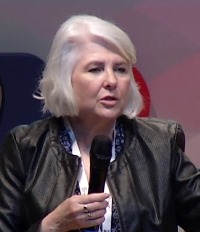Issues That Project Managers and Other Members of the Project Team
Should Be Aware of (Part 6)
Artificial Intelligence Use in Project Management
SERIES ARTICLE
By Ivano di Filippo, Dr. Josh Ramirez, Darrell Mesa, Claudia Alcelay, and Rebecca Winston
Italy, Spain and USA
Introduction
In this part of our series on artificial intelligence (AI), we aim to present a comprehensive view of the fundamental principles of AI Governance. This examination is grounded in an international perspective and supported by globally recognized concepts. This article is divided into three parts:
- First Part – Introduction to AI Governance: This introductory section defines AI Governance, highlighting its importance for both companies and society.
- Second Part – Fundamental and Shared Principles: This section presents the most well-known and commonly accepted principles in AI Governance. These include concepts such as transparency, fairness, responsibility, privacy, robustness, etc. These principles are the “pillars” of AI Governance, recognized and applied internationally. They establish the context and reference framework accepted in the scientific and professional community and represent the foundations on which the entire AI management system is based.
- Third Part – Interpretation and Scientific Reflection of the Authors: After outlining the fundamental principles, this section offers our unique interpretation, examining the practical application, potential challenges, and evolution of these principles in various contexts. We discuss the balance between proprietary interests and global AI Governance standards and the interplay between innovation and regulatory frameworks.
- Introduction to AI Governance
Definition and Importance
AI Governance is crucial for both organizations and society, as AI’s role as an essential component across various industrial sectors grows. Governance frameworks aim to minimize or even eliminate known risks, protect individual and organizational rights, and ensure ethical and responsible use of AI. However, the effectiveness of these frameworks can vary, necessitating ongoing evaluation and adaptation to remain relevant and truly beneficial over time
AI governance encompasses a framework of principles, norms, procedures, practices, and processes designed to responsibly guide and control the development and application of AI. It ensures transparency, fairness, security, and compliance with applicable laws and regulations across different jurisdictions, reflecting the varying nature of international and national laws. AI governance also promotes inclusivity and respect for a diverse range of human rights, acknowledging the complexities involved. It aims to balance innovation with effective risk management, adapting to the dynamic interplay between emerging technologies and established regulatory frameworks.
More…
To read entire article, click here
Editor’s note: This article is an introduction to a series of articles by the authors on the use of artificial intelligence (AI) in the project management field. While the authors recognize the rapidly growing attention on the potential power and impact of AI on project management, they also want to point out the risks of assuming AI and human intelligence are or can be equated. The authors have previously researched and published on topics related to neuro-behavioral issues and cognitive intelligence in project management.
[1] How to cite this work: di Filippo, I., Ramirez, J., Mesa, D., Alcelay, C., Winston, R. (2024). AI Governance and Innovation Culture, Artificial Intelligence Use in Project Management, series article, PM World Journal, Volume XIII, Issue XI, December. Available online at https://pmworldlibrary.net/wp-content/uploads/2024/12/pmwj147-Dec2024-di-Filippo-et-al-AI-Governance-and-Innovation-Culture-series-part-6.pdf
About the Authors

Ivano di Filippo
Rome, Italy
![]()
Applied Cognitive Neuroscience Scientist specializing in Project Management and AI
LinkedIn Profile | Official Website | Publications | Link to the book
Ivano di Filippo is a distinguished scientist in Applied Cognitive Neuroscience, focusing on project management and artificial intelligence. He currently leads the Cognitive Readiness Research Program, which is dedicated to advancing the mental preparation of leaders. From 2017 to 2019, Ivano served on the Board of Directors at the Italian Institute of Project Management (ISIPM), where he also holds certification as a Project Manager.
Educated in medicine at La Sapienza University of Rome, Ivano furthered his technical skills in computer science, working for ten years as a professional IT and Web programmer. His diverse expertise is enriched by over 30 years of studying and practicing Zen, integrating oriental disciplines into his professional and personal life.
In 2011, Ivano joined forces with Prof. Dr. Russell Archibald and Dr. Daniele Di Filippo in the international research program on Cognitive Readiness, eventually succeeding Dr. Archibald as the Program Director at his request.
In November 2022, he was appointed the Scientific Referent at ISIPM, continuing to impact the field with his innovative approach to integrating neuroscience into project management practices.
He is the co-author of the book “Cognitive Readiness in Project Teams – Reducing Project Complexity and Increasing Success in Project Management”. He can be contacted at

Dr. Josh Ramirez
Washington, USA
![]()
Dr. Josh Ramirez, PMP, NPPQ, is CEO of the Institute for Neuro & Behavioral Project Management, which he founded with Dr. Jodi Wilson. Josh is also co-author of the NeuralPlan (www.neural-plan.com) NPPQ master planner certification with Dr. Shari De Baets from Belgium, and he is an adjunct professor of project management, with experience that includes project management and project controls, including work at several national laboratories and other projects throughout the U.S. Department of Energy (DOE) complex. He has authored best practices for the DOE Energy Facilities Contractors Group and wrote for other project management periodicals. His doctoral dissertation is titled Toward a Theory of Behavioral Project Management. You can view an introduction to Josh and his colleagues’ work in Behavioral Project Management at https://youtu.be/miqbagN_4dQ. The future of project management is designing PM methodologies around the beings that predict and deliver projects: humans. You can also listen to some of the podcasts Josh and his colleagues have been featured on, here: Behavioral PM: the Freakonomics Approach to Project Delivery with Dr. Josh Ramirez – https://pmhappyhour.com/ep077/; Neuroscience in Project Management – https://www.pmi.org/chapters/wdc/pmi-resources/pm-podcasts/pm-point-of-view-69; Tips from Behavioral Science – https://www.pmi.org/chapters/wdc/pmi-resources/pm-podcasts/pm-point-of-view-95.

Darrell Mesa
California, USA
![]()
Darrell Mesa, a Senior Program Planner / Scheduler and a dynamic intrapreneur, with extensive expertise in project management, including program planning, scheduling, and risk management. As a certified Project Management Professional (PMP), he has a demonstrated history of steering large-scale projects to success by applying industry best practices, with special proficiency in Earned Value Management (EVM), Critical Path Schedule Management, and Work Breakdown Structure. His role as a Microsoft Project Practitioner at Denver Corporate Search showcases his ability to develop and update intricate MS Project schedules, adhering to stringent government regulations.
Darrell’s professional journey is marked by significant roles that have allowed him to leverage his skills effectively. At Projitz LLC, as a Senior Program Planner / Scheduler, he enhanced project efficiency through meticulous application of Work Breakdown Structure and Critical Path Analysis. As a Senior Integrated Master Scheduler at Highbury Defense Group, he made notable improvements in program efficiencies through the execution of Integrated Master Schedules and the integration of Earned Schedule methodologies. A key achievement in his career was the development of 89 Project E-cademy training courses, which increased team productivity by 10%. In his capacity as a Learning Management Administrator, he demonstrated dedication to knowledge dissemination, using WordPress Tutor LMS to bolster team skills in Project Scheduling using Microsoft Project Professional and Project Web App.
In addition to his corporate roles, he is the founder of Influence IPM LLC, a business focused on Integrated Project Management, where he leverages his vast experience to provide cutting-edge project management solutions. More about his entrepreneurial venture can be found at influenceipm.com. Beyond traditional project management, he is also an active AI Influencer through his YouTube channel (Restless Minds), where he creates and shares content on AI advancements, fostering a community of tech enthusiasts and professionals keen on the latest in artificial intelligence. Based in Murrieta, California, he is keen on connecting with like-minded professionals and can be reached via email at darrell.mesa@pm-ss.org or through LinkedIn at https://linkedin.com/in/darrell-mesa-pmp-csm-4bbb8955.

Claudia Alcelay
Madrid, Spain
![]()
Claudia Alcelay, Product Manager, AI | PMP®, PMIACP, CSPO®, SAFe 5 is an experienced project manager specializing in AI with a deep background in innovation, particularly in driving the evolution of the EdTech sector. She has served for the European Commission and various ministries in Spain, Egypt, and France. She currently works as a Product Manager for AI with a focus on developing innovative solutions to enhance training portfolios. Additionally, her professional journey involves leveraging a knowledge-based approach in data-centric AI models. She is an active community member, sharing her findings in her weekly newsletter, on LinkedIn, “My AI Reading List,” and also serving as a panelist for MIT Technology Review and participating in the Advisory Council for Harvard Business Review (HBR). She can be contacted at caceley@gmail.com

Rebecca (Becky) Winston
Idaho, USA
![]()
Rebecca (Becky) Winston, Esq., JD, PMI Fellow, is a former Chair of the board of the Project Management Institute (PMI®). Becky has over 30 years of experience in program and project management, primarily on programs funded by the US government or their contractors.
Active in PMI since 1993, Rebecca Winston helped pioneer PMI’s Specific Interest Groups (SIGs) in the nineties, including the Project Earth and Government SIGs, and was a founder and first co-chair of the Women in Project Management SIG. She served two terms on the PMI board of directors as director at large, Secretary Treasurer, Vice Chair (for two years), and Chair (2002). She was elected a PMI Fellow in 2005. She is also a member of the American Bar Association and the Association of Female Executives in the United States. She currently is the Executive Vice President of the College of Performance Management and the lead for their ISO standards committee given her 25 plus years of ISO experience.
She has served as an advisor to organizations such as the National Nuclear Security Administration (USA), U.S. Department of Energy (DOE) and the U.S. Department of Homeland Security (DHS) on topics ranging from Program and Project Management to project reviews, risk management, vulnerability assessments, software development and artificial intelligence. She served on the Air Force Studies Board for six years and serves the Intelligence Science Technology Engineering Group for the National Academies of Science, Engineering, and Medicine, as well as actively serving on many studies for the National Research Council. She can be contacted at rebeccawinston@yahoo.com









